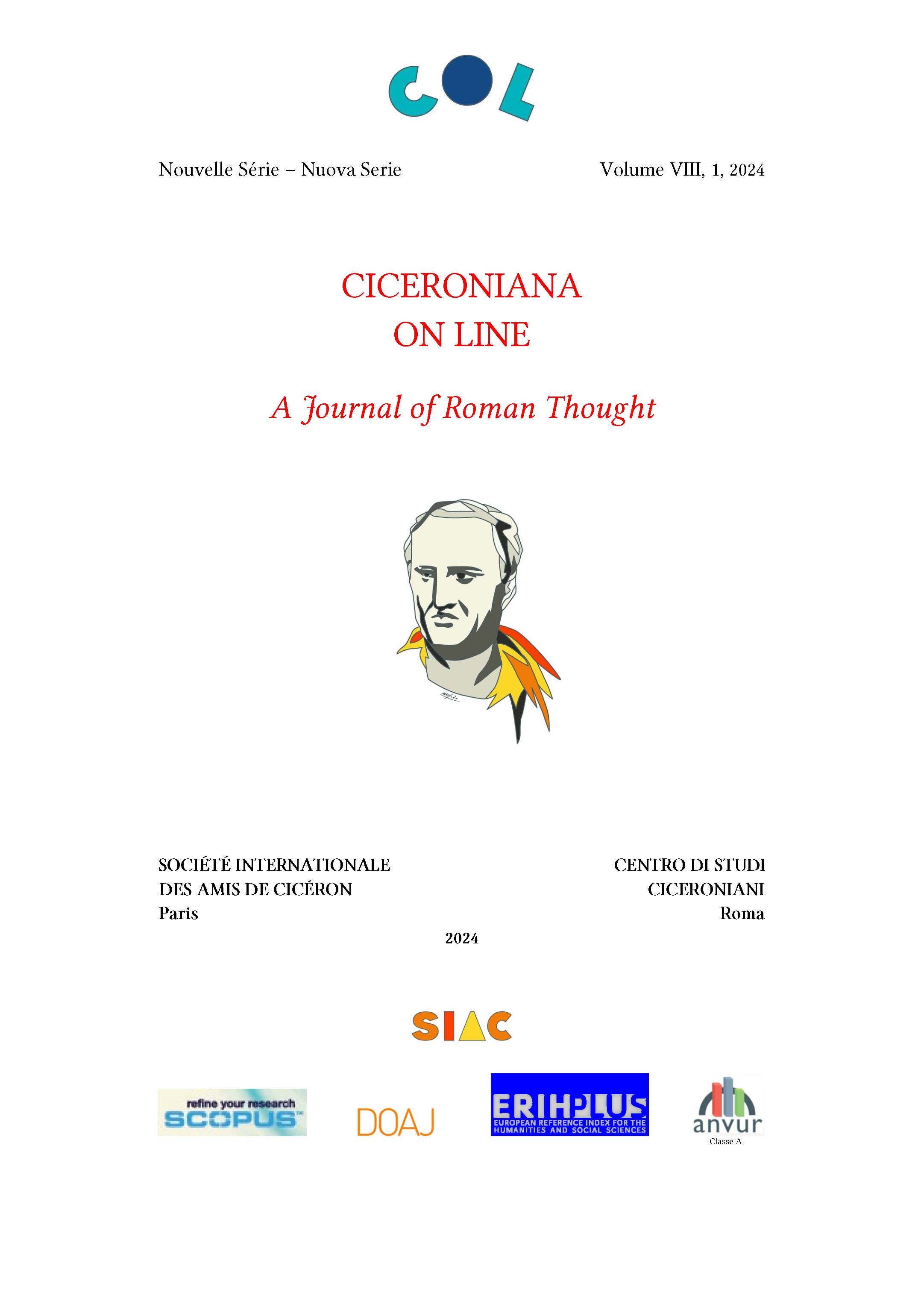Eternity and demiurgy. Cicero interpreter of the Timaeus
DOI:
https://doi.org/10.13135/2532-5353/10908Abstract
This article studies the interpretation of the Demiurge in Cicero’s Timaeus, focusing on the notion of eternity. Two passages in particular are examined, Tim. 20-21, where eternity is attributed to the Demiurge, and Tim. 27, where it is omitted.
Nat. deor. 1, 18-21, a crucial passage for the polemic against demiurgic eternity, is also considered. The analysis of aeternus and sempiternus in the Timaeus helps to elucidate Cicero’s perspective against the backdrop of Hellenistic philosophy.
Downloads
Downloads
Published
How to Cite
Issue
Section
License
Authors who publish with this journal agree to the following terms:
- Authors retain copyright and grant the journal right of first publication with the work simultaneously licensed under a Creative Commons Attribution License that allows others to share the work with an acknowledgement of the work's authorship and initial publication in this journal.
- Authors are able to enter into separate, additional contractual arrangements for the non-exclusive distribution of the journal's published version of the work (e.g., post it to an institutional repository or publish it in a book), with an acknowledgement of its initial publication in this journal.


 Ciceroniana On Line is recognised by ANVUR (the National Agency for the Evaluation of the University System and Research) as a CLASS A journal for the Sciences of Antiquity, Philology, Literature and History of Art (
Ciceroniana On Line is recognised by ANVUR (the National Agency for the Evaluation of the University System and Research) as a CLASS A journal for the Sciences of Antiquity, Philology, Literature and History of Art ( The journal is included in DOAJ. The DOAJ listing of the journals is available at
The journal is included in DOAJ. The DOAJ listing of the journals is available at  The journal is indexed in
The journal is indexed in  The journal has been included in ERIH PLUS. The ERIH PLUS listing of the journals is available at
The journal has been included in ERIH PLUS. The ERIH PLUS listing of the journals is available at 

